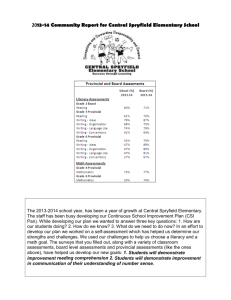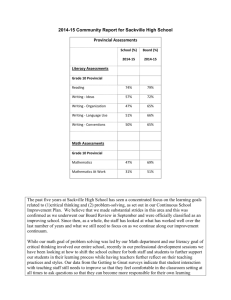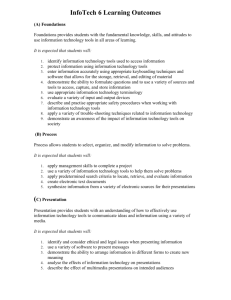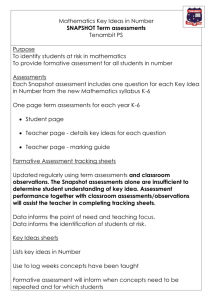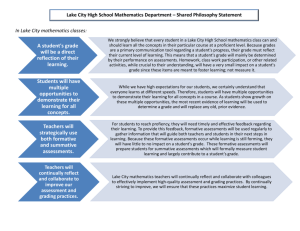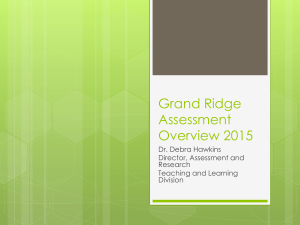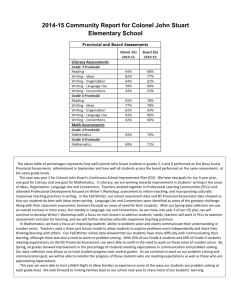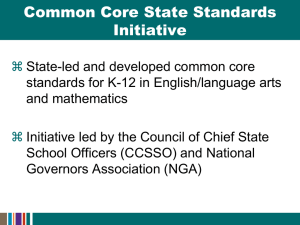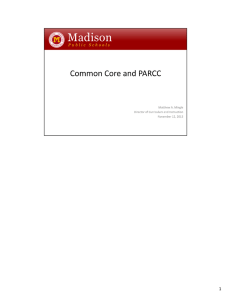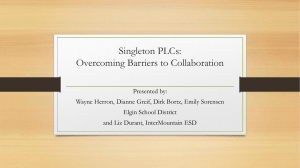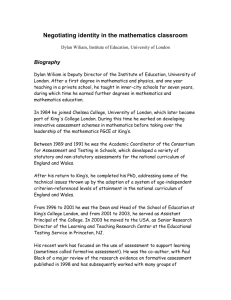John Martin Community Report 2015
advertisement
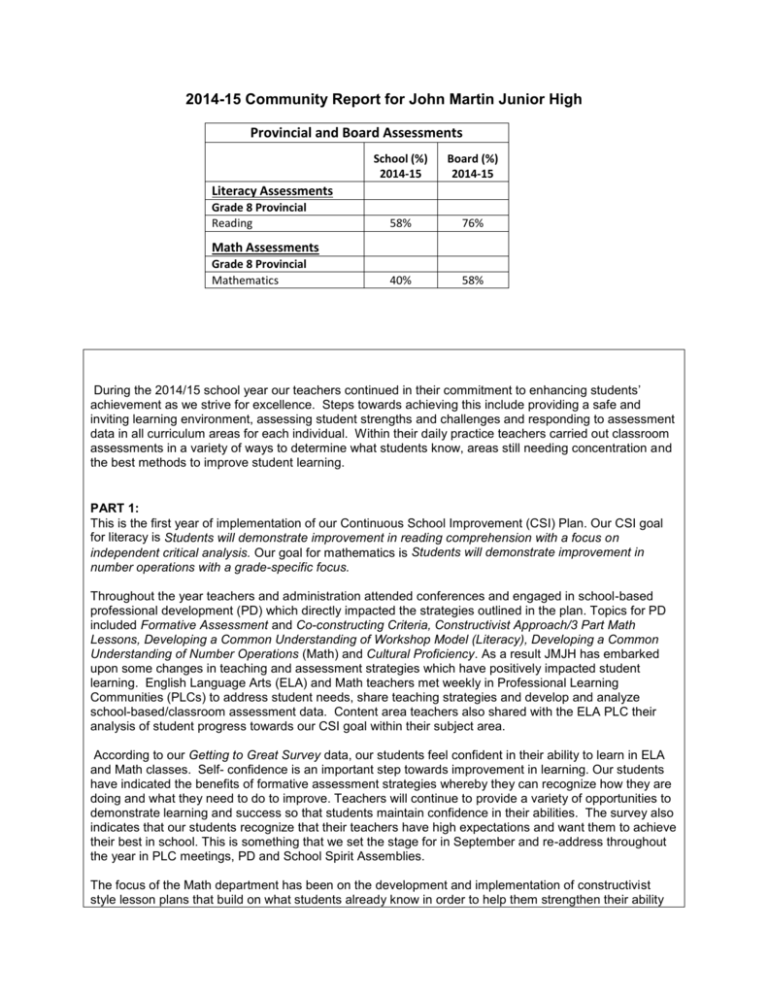
2014-15 Community Report for John Martin Junior High Provincial and Board Assessments School (%) 2014-15 Board (%) 2014-15 58% 76% 40% 58% Literacy Assessments Grade 8 Provincial Reading Math Assessments Grade 8 Provincial Mathematics During the 2014/15 school year our teachers continued in their commitment to enhancing students’ achievement as we strive for excellence. Steps towards achieving this include providing a safe and inviting learning environment, assessing student strengths and challenges and responding to assessment data in all curriculum areas for each individual. Within their daily practice teachers carried out classroom assessments in a variety of ways to determine what students know, areas still needing concentration and the best methods to improve student learning. PART 1: This is the first year of implementation of our Continuous School Improvement (CSI) Plan. Our CSI goal for literacy is Students will demonstrate improvement in reading comprehension with a focus on independent critical analysis. Our goal for mathematics is Students will demonstrate improvement in number operations with a grade-specific focus. Throughout the year teachers and administration attended conferences and engaged in school-based professional development (PD) which directly impacted the strategies outlined in the plan. Topics for PD included Formative Assessment and Co-constructing Criteria, Constructivist Approach/3 Part Math Lessons, Developing a Common Understanding of Workshop Model (Literacy), Developing a Common Understanding of Number Operations (Math) and Cultural Proficiency. As a result JMJH has embarked upon some changes in teaching and assessment strategies which have positively impacted student learning. English Language Arts (ELA) and Math teachers met weekly in Professional Learning Communities (PLCs) to address student needs, share teaching strategies and develop and analyze school-based/classroom assessment data. Content area teachers also shared with the ELA PLC their analysis of student progress towards our CSI goal within their subject area. According to our Getting to Great Survey data, our students feel confident in their ability to learn in ELA and Math classes. Self- confidence is an important step towards improvement in learning. Our students have indicated the benefits of formative assessment strategies whereby they can recognize how they are doing and what they need to do to improve. Teachers will continue to provide a variety of opportunities to demonstrate learning and success so that students maintain confidence in their abilities. The survey also indicates that our students recognize that their teachers have high expectations and want them to achieve their best in school. This is something that we set the stage for in September and re-address throughout the year in PLC meetings, PD and School Spirit Assemblies. The focus of the Math department has been on the development and implementation of constructivist style lesson plans that build on what students already know in order to help them strengthen their ability to perform mathematical operations. We have observed improvement at all grade levels with relation to mathematical operations and we feel this is directly related to our students’ efforts in the classroom. Our daily routine includes open ended questions, hands on exploration, and critical reflection by students and staff. The focus in ELA has been in utilizing workshop as the daily instructional approach with a focus on higher level thinking within, beyond, and about text and engaging students in developing self-assessment checklists to provide formative feedback to improve critical thinking. Schoolbased/classroom assessments have indicated student improvement at each grade level. PART 2: According to the Grade 8 Provincial assessment data (reported in the table above), and our classroom based assessments, student interest in reading has shown a marked increase over the last year. Our student's strength in reading lies in basic comprehension and making personal connections to what they have read. The main challenge faced by our students is vocabulary. Based on classroom and provincial data, we find a limited vocabulary poses many problems when independently answering higher level questions. Although we are working on critical thinking skills as a school wide goal, we must also include vocabulary building as a means to meet this goal. In mathematics, the number of students meeting expectation has risen to 40%. This is a significant improvement over previous years and brings us closer to the Board average of 58%. Students did much better in Patterns and Statistics and continue to make improvements in all other areas. Teachers will be focusing on mental math strategies to improve students’ flexibility with number. This will help students increase their ability to apply knowledge to level 3 questions which require the analysis of mathematics information.
